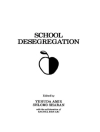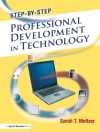The state of Yucatán has its own distinct culinary tradition, and local people are constantly thinking and talking about food. They use it as a vehicle for social relations but also to distinguish themselves from “Mexicans.” This book examines the politics surrounding regional cuisine, as the author argues that Yucatecan gastronomy has been created and promoted in an effort to affirm the identity of a regional people and to oppose the hegemonic force of central Mexican cultural icons and forms. In particular, Yucatecan gastronomy counters the homogenizing drive of a national cuisine based on dominant central Mexican appetencies and defies the image of Mexican national cuisine as rooted in indigenous traditions. Drawing on post-structural and postcolonial theory, the author proposes that Yucatecan gastronomy – having successfully gained a reputation as distinct and distant from ‘Mexican’ cuisine – is a bifurcation from regional culinary practices. However, the author warns, this leads to a double, paradoxical situation that divides the nation: while a national cuisine attempts to silence regional cultural diversity, the fissures in the project of a homogeneous regional identity are revealed.
Tabela de Conteúdo
List of Figures and Tables
Acknowledgements
Map of Yucatán Peninsula
Introduction: Food and the Postcolonial Politics of Identity
Chapter 1. The Story of Two Peoples: Mexican and Yucatecan Peoplehood
Chapter 2. Mérida and the Contemporary Foodscape
Chapter 3. The Yucatecan Culinary Field and the Naturalization of taste
Chapter 4. Cookbooks and the Gastronomic Field: From Minor to Major Codes (and Back)
Chapter 5. The Gastronomic Field: Restaurants and the Institutionalization of Yucatecan Gastronomy
Conclusion: Food and Identities in Post-National Times
Glossary of Recipes
Cookbook References
Bibliography
Index
Sobre o autor
Steffan Igor Ayora-Diaz is Professor of Anthropology at the Facultad de Ciencias Antropológicas, U. Autónoma de Yucatán. He received a Ph D in anthropology from Mc Gill University in 1993 and has conducted fieldwork in Italy and Mexico. His work has centered on globalization and local knowledge.












